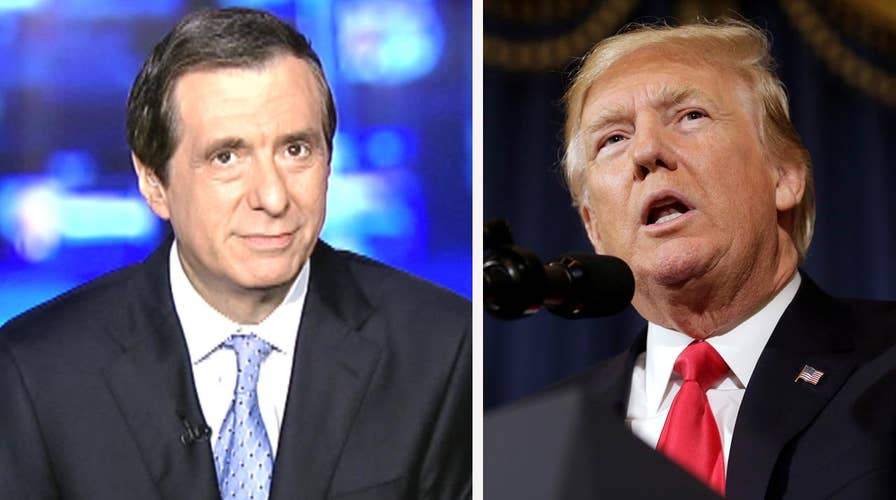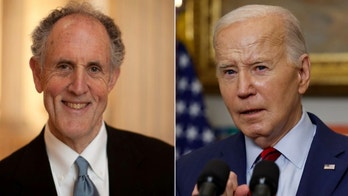Kurtz: Health reform keeps looking ‘skinnier’
'MediaBuzz' host Howard Kurtz weighs in on the Senate's many pushes to pass a bill repealing ObamaCare
The Republicans’ moment of victory on health care didn’t last long.
With cancer-stricken John McCain making a stirring speech and casting the decisive procedural vote on Tuesday, President Trump and Mitch McConnell were able to get the health bill out of intensive care and to the Senate floor.
But in the vote hours later on the main repeal-and-replace bill—the one that the president and GOP leadership have been pushing so hard—nine Republican senators defected. It wasn’t even close.
In other words, the president’s team is no closer to getting a health care bill than before McConnell, with an appeal to party loyalty, miraculously brought the effort back from the dead. The Republican divide is as deep as ever.
Indeed, the Republicans failed again yesterday to pass a repeal-only bill, which Trump favored as a backup but which never had a chance.
Their only hope now is to pass something fairly miniscule and declare victory.
But the so-called “skinny repeal” is looking increasingly like anorexic repeal.
Keep in mind that Republicans spent seven years promising to repeal and replace ObamaCare. It’s awfully hard for them to walk away empty-handed.
So they need to pass something, anything, to get to a House-Senate conference and then declare victory.
Given that this fight has consumed the first six months of the administration, my sense is that the GOP would like to rid itself of the issue and move on. HHS Secretary Tom Price actually spoke on CNBC of passing “the lowest common denominator…What gets us to 50 votes so that we can move forward on a health-care reform legislation… that’s what needs to happen.”
The skinny repeal, as I understand it, would abolish the Obama law’s mandates for individuals and larger companies (and ax a tax on medical device makers).
One problem is that without a mandate, lots of healthy people can just wait till they get sick to buy insurance, which could shatter the financial underpinnings of the system. The larger dilemma is that this would leave almost all of ObamaCare in place, including subsidies, regulations on required services and the Medicaid expansion.
One other thought: there has not been a single committee hearing on this legislation that affects one-sixth of the economy.
As McCain said before voting to proceed (and later supporting the repeal-and-replace bill): “We’ve tried to do this by coming up with a proposal behind closed doors in consultation with the administration, then springing it on skeptical members, trying to convince them it’s better than nothing, asking us to swallow our doubts and force it past a unified opposition. I don’t think that’s going to work in the end, and it probably shouldn’t.”
If Democrats were doing that, the right would be going crazy. The Dems did use parliamentary maneuvers to ram through ObamaCare on a party-line vote, but they held lots of hearings.
McConnell has no time to worry about legislative niceties. After the Republican defections on the bigger bills, he’s got an uphill battle to get to 50—on something.





